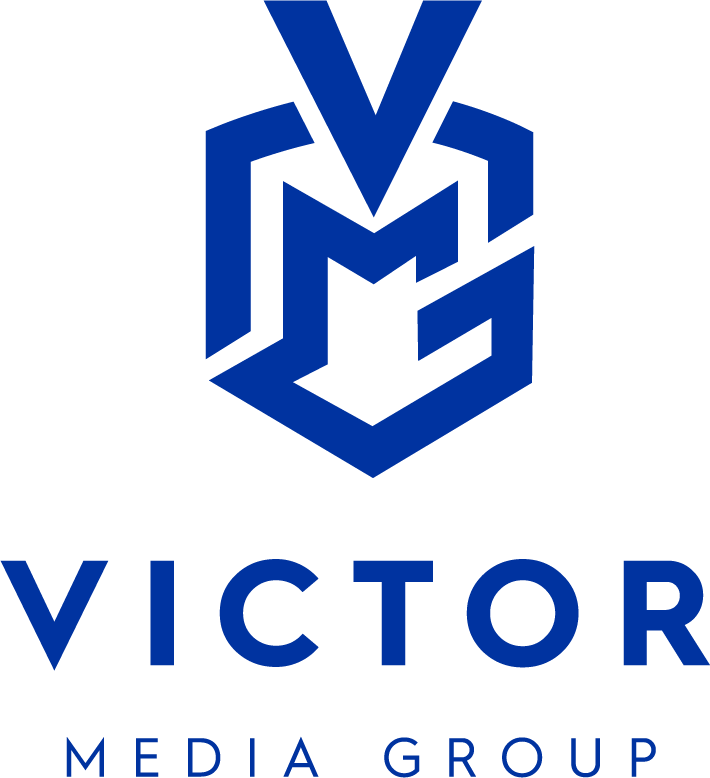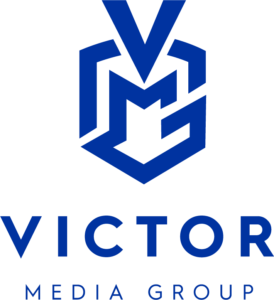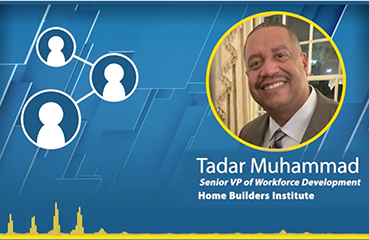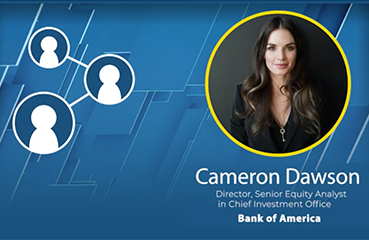Crummer Connections Podcast & Video Series: Cameron Dawson MBA’12
Cameron Dawson builds a career blending business and the arts.
September 8, 2020
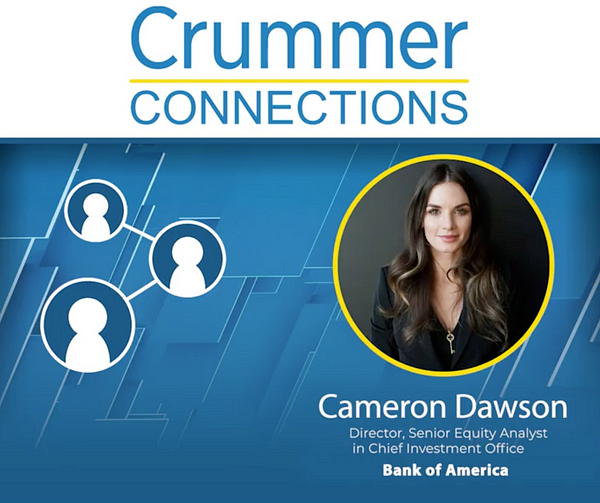
Cameron Dawson is Director, Senior Equity Analyst in the Chief Investment Office of Bank of America. But her path into a career in banking could be considered unorthodox. Her early interest in dance and consistent discipline helped her realize her dream of becoming a professional ballet dancer. When faced with a change in plans, she sought her MBA and discovered the world of finance, which led to her current role. In this interview with J.B. Adams of Crummer Connections, she describes how ballet prepared her for business, how she broke into the financial scene in New York City, and how other professionals can “pay it forward.”
Part 1: Cameron Dawson as Senior Equity Analyst at Bank of America
J.B. Adams: I want to start first with unpacking your title. Can you describe what “Director, Senior Equity Analyst in the Chief Investment Office means in layman’s terms?
Cameron Dawson: I work for Bank of America, and we are the chief investment office that serves a lot of the private wealth management and trust management within the bank. I act as an equity analyst or senior equity analyst on the team, and I cover the industrial stocks. Think big machinery companies, aerospace, and defense, old industry. It’s extraordinarily fascinating. It’s just kind of the nuts and bolts behind how things work.
J.B. Adams: You are in New York City working in the banking industry, and that is something that a lot of people aspire to. You’re also a woman working in a field that doesn’t have a lot of women. Tell us more about that.
Cameron Dawson: Working in finance in New York is the ultimate dream for me, for a lot of people that I know. It’s an absolute thrill because you are working with the best of the best, cream of the crop, top in their industry, with my peers that I know I get to surround myself with. What’s interesting is those peers are typically male, mostly in industrials. You don’t learn about tractors as a young woman usually. And so it was an incredible process. I mean, I remember Googling “how do engines work?” when I first started.
When I go to conferences or meetings, I can be in a room of 40 people and I’m the only woman. It’s pretty cool, you know, to be able to be included in that. But also, it seems like a huge opportunity to be able to open up the doors to more people like me who are really passionate about this and might be deterred because they would stand out a little … I’m okay with standing out a little.
J.B. Adams: You’re setting the example as a leader and sort of paving the way for more women to follow in your footsteps. Anyone who listens to you can tell that you are passionate about it. Tell us what you love about this role and Bank of America.
Cameron Dawson: I love that … it never gets any easier, and that every single day is completely different. It’s not a kind of role where you accomplish something and you’re done and you can rest. The market in the world changes every single day. So it’s my job to be well-read, well-educated, and to be as in tune with things as I possibly can be, which means I can’t rest. I have to stay on all the time, and that kind of engagement is really exciting. I don’t get bored.
Part 2: Cameron Dawson’s Backstory and Early Career in Dance
Cameron Dawson was born and raised in Orlando, Florida. At a young age, she showed a talent and passion for dance. As a teenager, and with the support of her parents, she left a traditional high school education to school to home school herself and pursue a career in dance.
J.B. Adams: At what age did you start dancing?
Cameron Dawson: Since I can remember. I have memories of being super tiny and dancing and it really was by the time I was twelve that I said this is what I want to do. This is all I want to do.
J.B. Adams: Were your parent’s artistic people? Did you grow up in an artistic household?
Cameron Dawson: I would say so. My dad is a film producer, so he’s always been inclined to be quite artistic. My mom was a schoolteacher, but still very artistic as well. Both incredibly supportive of what I wanted to do and my dancing and really enabled me to continue to take it up to the next level and make sacrifices in quitting high school, that many parents might have been a little bit resistant to.
J.B. Adams: What I’m curious about is, did you initiate this and say, “Mom and Dad, I really want to be a dancer?” Or did they guide you to it?
Cameron Dawson: Oh, no, it was all me. I just knew that I couldn’t live without it, and I just wanted more. I was willing to put other things on the backburner; I was always very self-motivated. So I think that gave my parents some comfort that if they let me homeschool myself, that I would I would do OK. Yeah, I mean, one day I just came home from school and I said, “Mom, Dad, this is what I want to do. I want to move to Miami and I want to dance full time.”
J.B. Adams: You were how old at this time?
Cameron Dawson: Fifteen.
J.B. Adams: Dancing was your early career and this was your first exposure to the business world. What were some of the lessons that you got in a business context, by dancing?
Cameron Dawson: Yes, dancing, and ballet dancing in particular, requires an incredible amount of discipline, and focus, and pain tolerance, or facing challenges. And so the dancing enabled me to have these skills, to be able to press through the challenges, as well as to learn how to present myself. And I think that is something that ballet and dancing in general, is so wonderful because it teaches you how to stand up straight, and hold your head up high, and move with elegance. Then it translates really well into being able to converse with elegance and to be able to present yourself in a business environment.
And it’s funny because I still meet people now when I’m doing business and they will say, “You were a ballet dancer at one point.” And I go, “Well, how did you know?” You don’t realize it, but it exudes from the way that you carry yourself. And I think that I wouldn’t trade it for the world.
With an exciting future on the horizon, Cameron Dawson set out to conquer the world of ballet. But an unexpected setback challenged her very identity.
Cameron Dawson: So I was all prepared to go to the Varna International Ballet Competition, essentially the Olympics of ballet in Europe. And about four weeks prior to that, I got really injured. I had been struggling a great deal with ankle injuries and knee injuries. My body was really feeling the pain from all of the impact and the and the training that it was doing.
J.B. Adams: I just want to back up for a second and make it clear what Varna means. It is a big deal. If you go to Varna, and you compete, and you get recognition for competing, it opens up all kinds of doors for you in the world of ballet. So tell us how this … turned out and if you went to Varna to perform.
Cameron Dawson: I didn’t go to Varna. I pulled out of the competition so that I could have the surgery and they were able to remove the bones successfully. But it was a long recovery. It took about four or five months before I was fully up to speed. And I soon after I started auditioning for companies and got a job with the Sarasota Ballet. And I continued to dance and it just got more and more painful, and more and more stressful on my body.
I remember the moment I was making a decision. My mom, thankfully, had forced me to take it as the ACT and the S.A.T. and to sign up for classes for college, just online. And I’m sitting with a contract in my hand and a lease to move to Sarasota. And I looked at her, said, “I can’t do this anymore. I can’t. I’m in too much pain.”
That was two weeks before the semester was supposed to start for UCF, which is where I had signed up for Internet online classes. And I said, “I’m going to be a college student and I’m going to go to college.” I hadn’t been in a classroom in over three years. I had no idea if I was going to be good at school or not. I always loved school, but I completely changed my direction and said “I’m no longer a ballet dancer. It’s not my identity anymore.”
J.B. Adams: It sounds like you were done with dancing. But what we will find out is the dancing wasn’t quite done with you. What happened after you went to UCF?
Cameron Dawson [00:18:51] So I was there for a year. And I had the fortitude to be able to be in a classroom with this fantastic professor. And he said, you got to get out of here. You need to be at a liberal arts school and you need to go to Rollins.
And so I just walked myself into the admissions building at Rollins and said, “I want to go here.” And I went through the whole process.
And the challenge was that I was a transfer student. And I went from being, you know, my bright future scholarship at UCF to going to a private school. I really had to make the decision of how long I could stay at Rollins that I could afford. So I accelerated my time in undergrad and did it fairly quickly, in two years for the rest of the degree. But the real draw on what kept me so engaged at Rollins was my dancing there.
I had really closed off to the idea of ever dancing at school. Didn’t want to do it. And my mom again said, “You have to take a dance class. You need the credits. You need the art credits. Just go take a dance class.”
So I walk into the dance studio and it was Dr. Robert Sherry. And after one class, he said, you have to be at our spring concert. You have to be at our winter concert. What are you doing? Why aren’t you performing with us? I said no, no.
J.B. Adams: And what made it okay? What was the new kind of dance?
Cameron Dawson: It wasn’t ballet. It was modern and jazz … and it completely changed my view of dance. I mean, it reignited my love of performing and it kind of healed some of the wounds of having to walk away from it. And my favorite dance performance experiences are on the Annie Russell stage.
Part 3: Cameron Dawson’s Crummer Experience
Cameron Dawson describes her decision to pursue an MBA at the Crummer Graduate School of Business at Rollins College, and what she gained from the experience of being part of the 3:2 program that provides students with both bachelor’s and master’s degrees in five years.
J.B. Adams: How did you find Crummer? And what led you to decide to get your MBA?
Cameron Dawson: So I had a fantastic friend — [one of] my first friends I met in undergrad — who was an economics major along with me named John Klewin.
He was a 3:2. And he said, “You have to do this. It’s the best, most expedient program to be able to do both.” And so I went down that path and actually was able to finish the undergrad completely within the two years that I was there. So I graduated outright.
But at the same time, when I graduated from undergrad, it was 2010. We were in the midst of the financial crisis and it was really hard to find a job as an economics major from a small liberal arts school in Florida. And thankfully, because of the way that Crummer had its scholarship program at the time, which was related to your GMAT scores, it made it so that I could afford to continue and stay.
J.B. Adams: And you also continued to dance while you were studying in grad school?
Cameron Dawson: Yeah. And that was the most extraordinary thing, is that I didn’t have to stop the performing. I continued to be very involved in the artistic community at Rollins overall. And so it gave me this incredible balance between business and the arts and being able to have both of those brought so much joy into what I was doing.
In our discussion, Cameron Dawson indicated that her favorite MBA course and professor was securities analysis with Dr. Clay Singleton. But this came as a surprise, even to her.
J.B. Adams: What surprised you while you were at Crummer?
Cameron Dawson: That I got into finance! I would have never, ever, ever expected myself to be interested in finance. I had studied economics, which is related in many ways. But, as I’m sure you can tell, I always considered myself a very artistic person. I never wanted to be a “suit” and work at a bank or be away from the arts.
I really was looking for an academic challenge, and I asked all around to my friends in the program who was maybe a year older, “What’s the hardest class I can take?” And everybody said, “Oh, yes, Dr. Singleton’s security analysis class. If you want a challenge, that’s it.”
So I signed up. Within one, maybe two classes, I was hooked, and I said, “This is what I have to do.” And I was way in over my head … I didn’t know anything about this.
I would spend hours in Dr. Singleton’s office trying to understand what he was getting at. And anybody who knows Dr. Singleton knows that he doesn’t just give you the answer. I mean you really have to work, you have to earn it.
And it really was Dr. Singleton who said — midway through the course — “You need to do this. You’ll be good at this.”
And so that was the big pivot point for me. Because never in my life did I ever expect to want to do this. I just … I was bitten, and I said I can’t do anything else.
He introduced me to some people in New York who worked in finance and opened up the Rollins alumni network to be up there, who then introduced me to a bunch of other people. It was so eye-opening, and I knew that at some point I had to end up in New York doing finance and it wouldn’t have happened if it hadn’t been for him.
J.B. Adams: He wasn’t helping you with the class. He really got you started on this career in New York City in finance. But from all of this experience, what would you say is the takeaway?
Cameron Dawson: I think it’s having an open mind to change directions and not pigeonholing yourself. It would’ve been very easy for me to say, “Well, you know, I’ll do advertising or marketing because it’s kind of the combo of business and the arts.”
To have an open mind to go in and seek out a challenge, I think, paid off in an incredible way. Because now I am so engaged in my career … I love what I do and I can’t imagine myself doing anything different.
J.B. Adams: Do you think you turned into a “suit?”
Cameron Dawson: I’m the suitiest suit! But yes, I mean … with a certain artistic flair. I work for a big organization that still allows me to be an individual and celebrates the different individuality that I bring to the table. And that’s been extraordinary because throughout my whole career at Bank of America, I have had people who’ve said, what can we do to help you achieve your dreams and goals? And that’s kind of what Crummer did as well, which is, Dr. Singleton saying, “This is your goal. What can I do to help?”.
J.B. Adams: What’s your advice to a current student? What should they do to get the most out of this experience?
Cameron Dawson: I would say continuing to seek out challenges and to seek out what will push you to your edge because it’s an incredible opportunity for you to be a sponge and to learn to take on challenges. But it also can set you up through the next stages of your career.
Part 4: Cameron Dawson Applies Her Crummer Education
Cameron Dawson describes how she applied the education she received at the Crummer Graduate School of Business to her role at Bank of America.
J.B. Adams: You found your way to Bank of America.
Cameron Dawson: It was made possible because of the Edward Moses scholarship, which the finance department awarded me. It’s one of the coolest scholarships because it’s a post-graduate scholarship. I remember Dr. Singleton saying, “This is so that you can wait for the right job. Don’t take the first job. Wait for the right job.”
I had the advice from people that I met in New York through the Crummer alumni network, to say, “Take the CFA.” [This refers to the Chartered Financial Analyst program.]
So I signed up for the CFA and found out they did the scholarship program. And the person adjudicating that scholarship was a portfolio manager at U.S. Trust, which was part of Bank of America at the time. And he said, “You got the scholarship. But would you like to come in for an interview?”
And it turned out … and this is the challenge of doing an MBA right out of undergrad … it required two years of experience. So they actually gave me a courtesy interview, not a real one, because I didn’t have the work experience requirement. And I guess the interview went well — I got the job. And I continued through the CFA study process, completed it within two years.
I had these wonderful bosses who said, “What do you want to do with your life? What do you want to do with your career?”
And I said, “I want to work in research and I want to work in New York.”
And they said, “OK, fine.”
So … I finished level three of CFA, three exams that you have to take over the course of an extended period of time. The day I finished and got my results of Level Three, I got a phone call and [they] said, “Do you want to come up and move to New York? We need an industrial analyst on the equity team.”
And I said, “Yes, yes, one hundred percent!” And I moved up with two suitcases and a dream a month later.
J.B. Adams: Let’s talk about bringing this all together. How do you feel different as a result of Crummer?
Cameron Dawson: My background is so unique, not because of the dancing, but because of how I got into the world in finance compared to my peers. And it also makes me work really hard. I mean, I had an experience when I was first interviewing up in New York and I had somebody look at my resume and say, “Well, it’s really impressive what you have done and accomplished. But just so you know, nobody would take you seriously because of where you went to school.”
I thought, “Wow! … Well, first of all, I don’t want to work there.”
But it solidified that I need to seek out places that celebrate individuality and different backgrounds. I think about things differently than my peers and that can be very powerful and very addictive in finance when you are trying to get an edge in different ways. And so I think that it’s given me a different perspective.
J.B. Adams: And with that in mind, do you have a message for your fellow Crummer alumni?
Cameron Dawson: Yes. It is so hard to break into the scene in finance in New York, or just in New York in general, or any other big cities.
And I wouldn’t be here if it wasn’t for Dr. Singleton connecting me with the alums. I really think it’s our responsibility to pay that forward. But even if, as Dr. Singleton retires, that we can still remain very connected to the school so as to make it possible for people like me to break into this world. Because we have so much to offer to what can seem to be a very insular kind of social group within New York finance.
So we need to look out for each other and stay engaged, get to know the current finance professors so that when they see somebody that they think of is of exceptional caliber, that they can pass them on to us. I’m more than happy to open up my Rolodex and my connections to help somebody who was just like me, because I know I would not be here … I would not be in this job if it hadn’t been for all the people who helped me along the way.
J.B. Adams: And also with that in mind. What is the best way for people to reach you if they have a question or just want to follow up with you?
Cameron Dawson: Probably the best way is through LinkedIn. Just my name. You’ll find me.
J.B. Adams: Terrific, Cameron. I just want to say thank you so much for giving us your time today. Everyone who’s listening learned a ton. And we look forward to seeing what happens in your future.
Cameron Dawson: Thank you so much.

